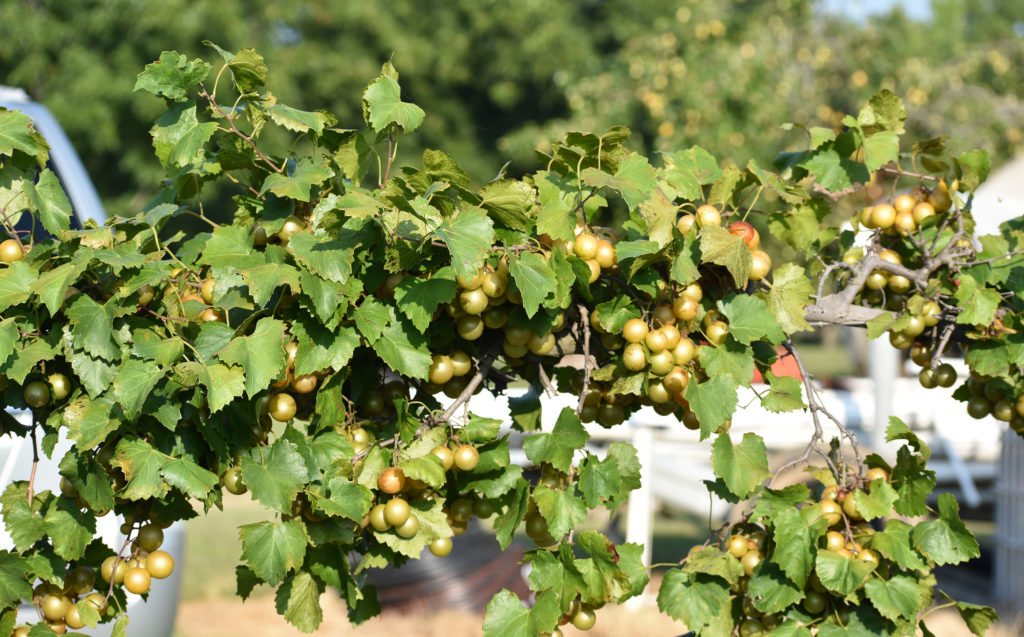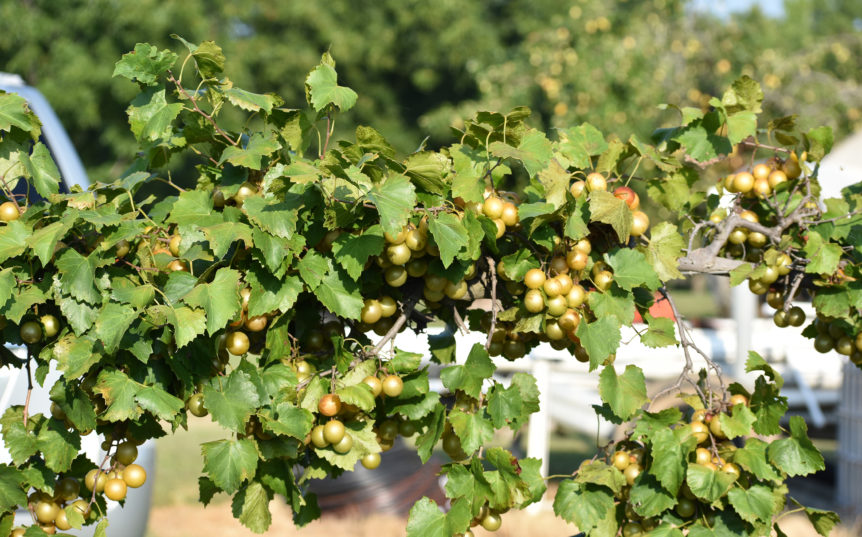
Researchers at the University of Florida Institute of Food and Agricultural Sciences (UF/IFAS) are harvesting their first crop of potentially disease-resistant wine grapes in Florida.
The first crop at UF/IFAS’s Plant Science Research and Education Unit in Citra, Florida, of Pierce’s disease-resistant grapes showed no signs of disease. The grape variety was developed by the University of California Davis, and UF researchers are working to prove the grapes can be produced effectively in Florida. It gives the state a boost to its nascent wine industry, said UF/IFAS associate professor Ali Sarkhosh.
This could open the door to more traditional wine operations in Florida, rather than exclusively muscadine wine, which is easier to grow in Florida’s climate.
“We see these grapes are doing well,” he said. “It is very exciting. It could be a really great opportunity for agritourism.”
Pierce’s disease, caused by bacteria, has been a formidable challenge for viticulture, especially in hot, humid climates like Florida. The disease, spread by insects, stops the water-spreading vessels inside grapevines, leading to severe water stress and vine death. The disease costs vineyards hundreds of millions of dollars a year. No method has been found to fully prevent the disease. It makes genetic resistance a critical focus for researchers.
In the 1920’s, grapes covered the Florida landscape, but Pierce’s disease – among other factors – wiped out most of the industry. The disease causes leaves to wilt, turn yellow and fall off, and for the fruit to shrivel. Given that there are limited treatments, farmers are encouraged to remove plants that get Pierce’s disease in order to prevent it spreading.
Choosing disease-resistant varieties could provide farmers in Florida with more growing options, Sarkhosh said. His research was funded by the Florida Department of Agriculture and Consumer Sciences’ viticulture program.










